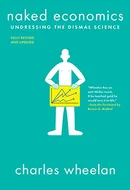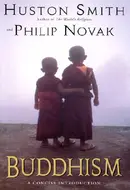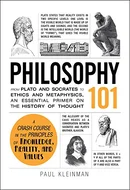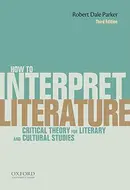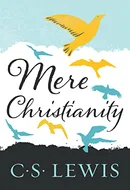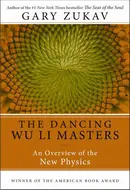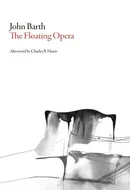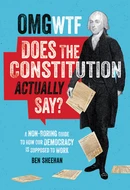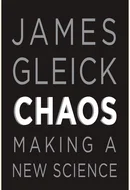Books matching: accessible introduction
84 result(s)
Readers also searched for:
'Naked Economics: Undressing the Dismal Science' by Charles Wheelan is a highly accessible introduction to the complex world of economics. Through real-life examples, engaging storytelling, and a touch of humor, Wheelan breaks down fundamental economic concepts in a way that is understandable to readers without an extensive background in economics. serves as a gateway for readers to grasp economic theories, market dynamics, and the broader implications of economic decisions on society.
Wheelan's writing style in 'Naked Economics' is praised for its ability to merge economic theory with narrative storytelling, making the subject matter both simple and interesting. Readers appreciate the book for its clear explanations, engaging anecdotes, and the way it combines humor with educational content. is described as a good starting point for those looking to understand basic economic concepts in a highly accessible manner, without getting bogged down by technical jargon or complex equations.
In 1989, as the Berlin Wall was toppling, Douglas Ivester, head of Coca-Cola Europe (and later CEO), made a snap decision. He sent his sales force to Berlin and told them to start passing out Coke. Fr...- #2
'Buddhism: A Concise Introduction' by Huston Smith and Philip Novak provides a comprehensive overview of Buddhism, exploring its history, different branches such as Theravada, Mahayana, Zen, and Tibetan, as well as how Buddhism developed in the West. The authors delve into the philosophical roots of the different practices within each strand of Buddhism, comparing and contrasting their values while also highlighting their fundamental unity. The writing style is deep, sympathetic, and analytical, treating Buddhism as a living religion to be practiced by modern people rather than just an anthropological artifact.
Buddhism begins with a man. In his later years, when India was afire with his message and kings themselves were bowing before him, people came to him even as they were to come to Jesus asking what he ... - #3
'Philosophy 101: From Plato and Socrates to Ethics and Metaphysics, an Essential Primer on the History of Thought' by Paul Kleinman is a concise and clear overview of major philosophers' biographies and philosophical concepts. The book presents short, three to five-page chapters on philosophers and their main ideas, along with explanations of specific thought problems and paradoxes. Despite being a crash course in philosophy, the book covers all the important parts of the history of philosophy without being too complicated.
The writing style of the book is easy to understand, making it a great starting point for young readers or those new to philosophy. The text is concise and logical, breaking down complex topics into manageable pieces while keeping the reader engaged. The book is well-written, covering a wide range of philosophical topics in a way that is palatable and informative.
- #4
Readers found "How to Interpret Literature: Critical Theory for Literary and Cultural Studies" by Robert Dale Parker to be a comprehensive and accessible introduction to literary theory, covering a broad spectrum of material in a readable and easy-to-grasp manner. The book breaks down major theories and schools of literary thought, providing solid examples in literature to explain each method of thought. The author's casual and conversational tone, along with relevant examples and humor sprinkled throughout the text, makes the complex theories easier to understand and digest. The book serves as a great resource for critical theory, presenting the main points in an understandable manner, making it a valuable tool for students just entering a literary theory course.
- #5
'The Undercover Economist' by Tim Harford is a book that explains basic economic principles in a clear and simple language, making it accessible to readers with no prior economic knowledge. The book uses everyday examples such as the cost of coffee and immigration to illustrate key economic concepts like scarcity, price targeting, and externalities. Harford's writing style is engaging and informative, providing insights into how economic systems work and how they impact daily life.
- #6
Mere Christianity by C.S. Lewis is a theological work that seeks to explain the fundamental beliefs of Christianity in a clear and accessible manner. Through a series of radio talks, Lewis delves into topics such as the existence of God, Christian morality, and the essence of Christian faith. The book is praised for its logical arguments, insightful explanations, and the use of everyday analogies to convey complex theological concepts. Despite some dated views and potential flaws in reasoning, Mere Christianity remains a classic and influential piece of Christian apologetics.
Born in Ireland in 1898, C. S. Lewis was educated at Malvern College for a year and then privately. He gained a triple first at Oxford and was a Fellow and Tutor at Magdalen College 1925-54. In 1954 h... 'Dancing Wu Li Masters: An Overview of the New Physics' by Gary Zukav is a unique exploration of the intersection between quantum physics and eastern mysticism. Zukav skillfully navigates complex scientific concepts like quantum mechanics, relativity, and the Einstein Podolsky Rosen effect while drawing parallels with philosophical ideas. is structured in a non-mathematical manner, making it accessible to readers without a scientific background, and it delves into the intriguing world of subatomic physics and the mysteries of the universe.
When I tell my friends that I study physics, they move their heads from side to side, they shake their hands at the wrist, and they whistle, “Whew! That’s difficult.” This universal reaction to the wo...- #8
The Floating Opera by John Barth is a novel that delves into the existential musings of the protagonist, Todd Andrews, as he recounts the day he contemplated suicide but ultimately decides against it. The narrative explores themes of absurdity, nihilism, and the value of life through Todd's introspective reflections and interactions with various characters. The writing style is characterized by a blend of philosophical introspection, dark humor, and clever wordplay, creating a thought-provoking and engaging reading experience.
To someone like myself, whose literary activities have been confined since 1920 mainly to legal briefs and Inquiry-writing, the hardest thing about the task at hand — viz., the explanation of a day in... 'OMG WTF Does the Constitution Actually Say?' by Ben Sheehan is a concise, clear, and witty guide to understanding the American Constitution. Sheehan breaks down the complex language of the Constitution into modern-day translations, providing real-world examples and historical context. The book not only explains each provision of the Constitution but also offers personal perspectives and insights from the author, making it an engaging and informative read for readers of all levels of familiarity with the subject matter.
We the People of the United States, in Order to form a more perfect Union, establish Justice, insure domestic Tranquility, provide for the common defence, promote the general Welfare, and secure the B...- #10
'Chaos: Making a New Science' by James Gleick is a book that delves into the emerging field of chaos theory, exploring concepts of randomness, complexity, and nonlinear systems. Through the history of discoveries in chaos theory, the author not only explains the scientific principles but also introduces the readers to the scientists behind these groundbreaking ideas. The book provides insights into the thought processes and investigative techniques used by researchers to study chaos, showcasing the human stories intertwined with the scientific advancements.
THE POLICE IN THE SMALL TOWN of Los Alamos, New Mexico, worried briefly in 1974 about a man seen prowling in the dark, night after night, the red glow of his cigarette floating along the back streets....
